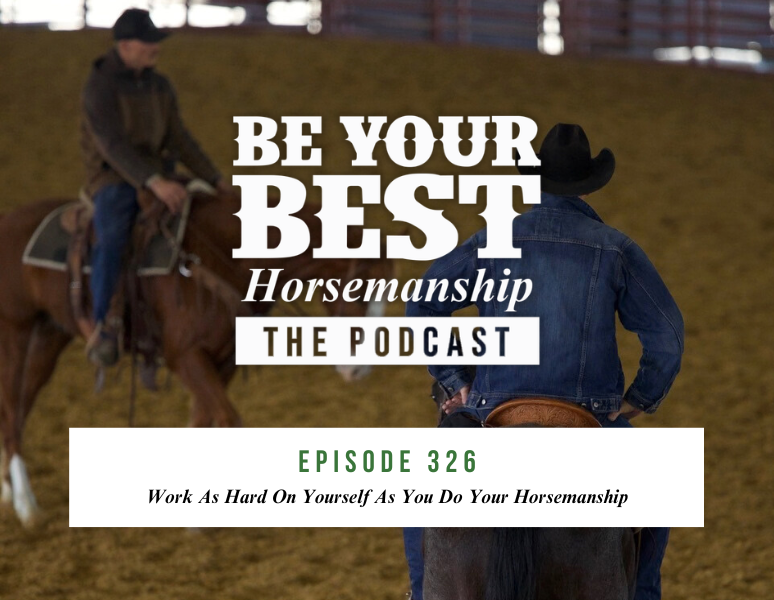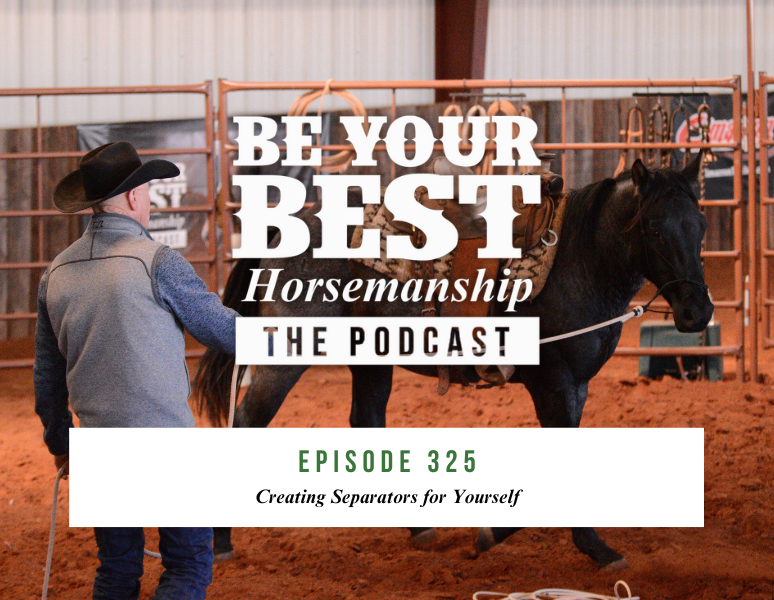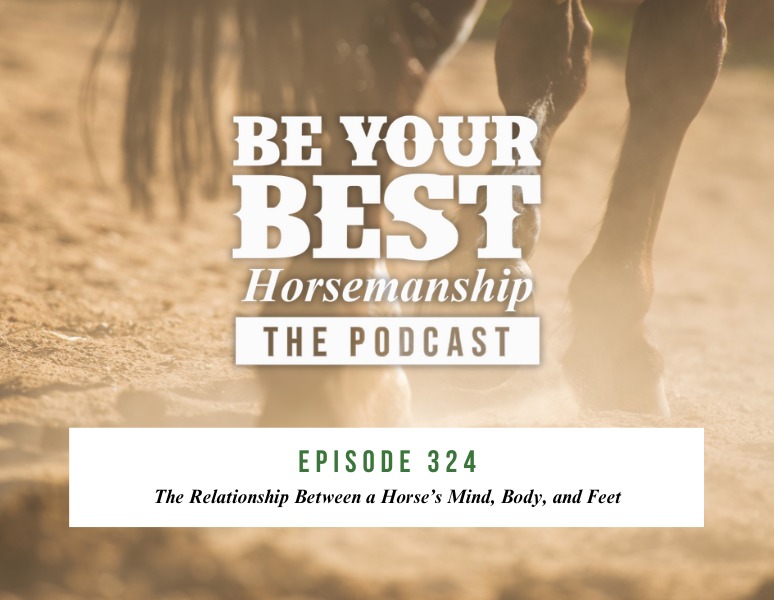Ep 256: Keeping Things in Perspective
In the training journey, it can sometimes feel like you are in a never-ending season of challenges. But, if there's one thing that I have realized through my own experiences and seeing others' experiences at clinics, it is that we are all going through the same challenges, just in a slightly different way. In this episode, I'm sharing some thoughts on keeping things in perspective and shifting your focus to the most important aspects of your training program.
I’ve spent years traveling across the country, working with different horses, riders, and trainers, and there’s one thing that’s become very clear to me: no matter where you are geographically, we’re all facing the same challenges. Whether you’re in a clinic in Oregon or down in Texas, the struggles are universal. But the beauty of horsemanship is that the horses are our greatest teachers, and most of what I share comes from what they’ve taught me over the years.
When I think back to how I started, I don’t believe I taught the horses as much as I figured out how to communicate with them. I learned how to get out of their way and let them do their job, which is easier said than done. We tend to micromanage everything in life—our work, our relationships, and yes, our horses. It’s part of our DNA. Even today, I catch myself trying to micromanage my assistant, who’s out there riding some colts I started. But just like with the horses, I’ve learned to give direction and then step back, trusting him to figure it out. That’s a lesson the horses have drilled into me.
Micromanaging doesn’t work with horses or people. There was a time I wasn’t great with employees because I’d want to control every step. And if you’re telling someone exactly how to do every little thing, you start to wonder why you even have help in the first place. It’s the same with horses. If you’re always holding the reins tight, never giving them a chance to make decisions, how are they supposed to understand what you’re asking?
At some point, you have to let go, literally. I see this at every clinic I do—people are scared to death to put their hand down, to release the reins, because they don’t fully trust their horse. I’ve been there. There were times I couldn’t bring myself to let go because I had no idea what the horse would do. But here’s the thing: if you always ride with the reins up, when you actually need to give a signal, it doesn’t mean anything. Your horse doesn’t know the difference. And believe me, I was one of the worst at that. So when I’m talking about this, I’m talking about myself as much as anyone.
That’s why having someone help you with these challenges is so important. We’re best equipped to help the person we used to be. That’s the heart of why I run clinics and have a mentorship program. It’s about sharing what I’ve learned from my own struggles. I remember one trainer telling me, “I just don’t feel like I have anything to share with others.” But that’s far from the truth. We all have something to offer, especially from our toughest experiences. The hardest lessons often teach us the most.
Just the other night, I had a rough practice session roping steers. Wade, my son, roped outstanding—he’s got a great head horse and a natural ability not to micromanage. Meanwhile, I was all over the place. Missed a couple of steers, roped some legs, and just wasn’t in sync. Now, if I judged the night solely on how many steers I caught, it would’ve been a total failure. But that’s not how I see it. I learned a lot from that practice. I figured out what I need to work on with my horse, and I identified a few areas where I can improve my own timing. My horse is only ever inconsistent because of me.
I’m still recovering from knee surgery, which has impacted how I ride. I developed some bad habits because of the pain in my leg, and now I’m working to rebuild confidence in my position and my timing. It’s a process. There’s no shortcut. But here’s the key: I don’t beat myself up over it anymore. There was a time I would’ve left that practice feeling like a failure, but not now. Now, I focus on what I’ve learned and how I’m going to get better.
Self-talk is everything. You have to be mindful of what you feed your brain. If you’re constantly telling yourself you’re bad at something or you can’t do it, you’re going to believe that. Instead, focus on the process and tell yourself it’s going to get better. After that rough practice, I reminded myself that I’ve been working hard. I’ve been putting in the hours. My horse is in great shape. We’ve got everything we need. It’s all part of the journey.
At the end of the day, we’re all incredibly lucky to do what we do. Sure, we face challenges, but we also get to work with these incredible animals and pursue a passion that’s deeply fulfilling. We have to keep that perspective. Whether things go perfectly or not, it’s all about growth—personal development, horsemanship, and everything in between. And that’s what I’m here for: to help others, just as the horses have helped me.
So wherever you are with your horse, or in life, start where you are and move forward. We’re all in the same boat. Every clinic I do is different because every group, every horse is unique. But the challenges are always familiar. That’s why my mentorship programs combine not just horsemanship, but also personal development, marketing, and brand building. It’s all connected. The way we talk to ourselves, how we present ourselves—that’s branding. And without that personal development piece, I believe we’re limited in how far we can go with our horsemanship.
This journey isn’t just about becoming a better horseman; it’s about becoming a better person. Improve yourself first, and the improvement in your horsemanship will follow. You’ve just got to keep that in perspective.




